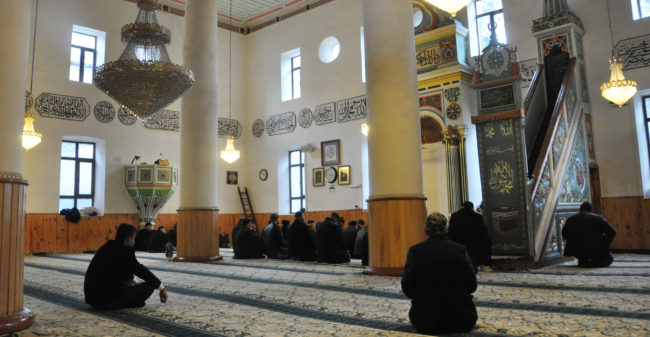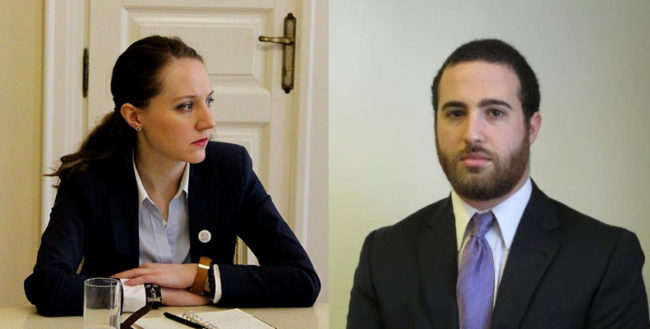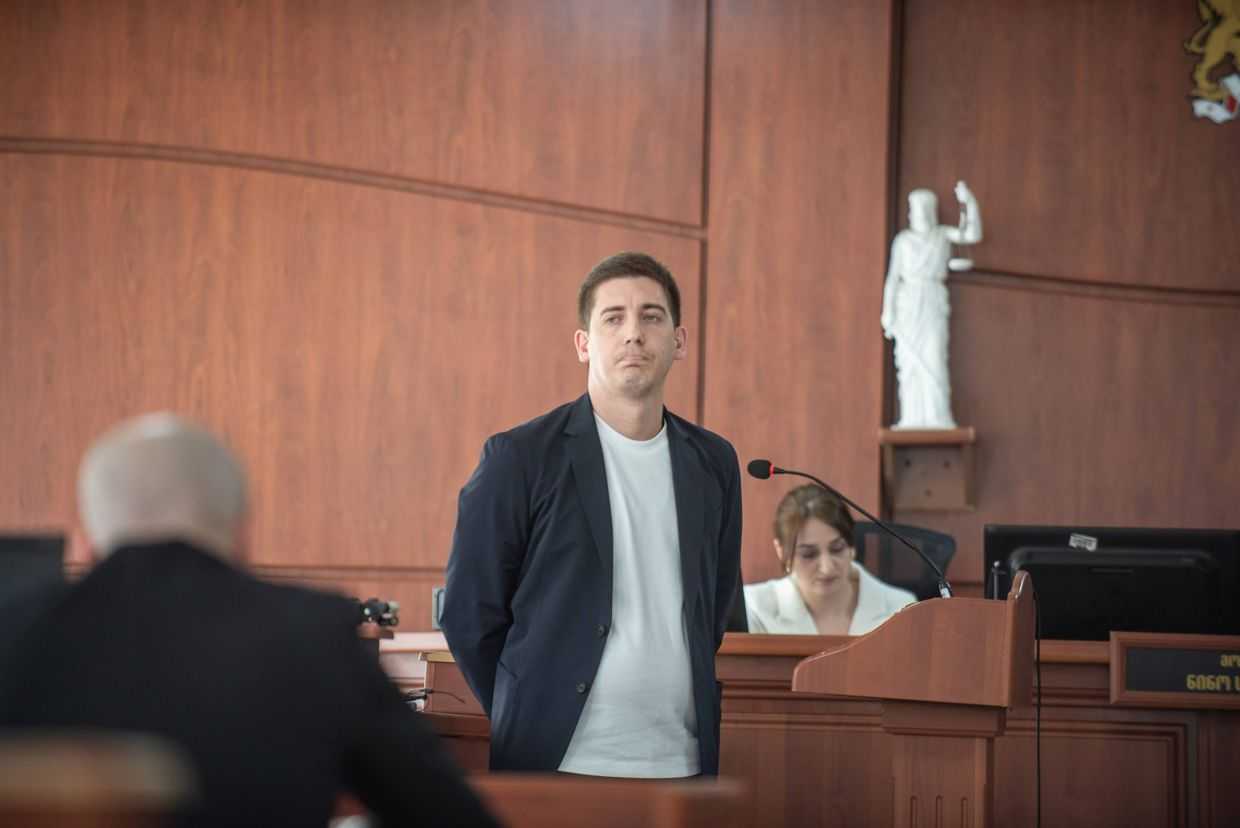Georgia’s Muslim authority should represent the interests of Georgia’s Muslims, not the government’s [Opinion]
![Georgia’s Muslim authority should represent the interests of Georgia’s Muslims, not the government’s [Opinion]](/_next/image/?url=https%3A%2F%2Foc-media.org%2Fcontent%2Fimages%2Fwordpress%2F2019%2F12%2FBatumi-prayer-scaled.jpg&w=3840&q=90)


The Administration of Muslims of All Georgia is supposed to represent the interests of all of Georgia’s Muslims. However, instead of responding to community concerns — it acts in concert with the state. To support the political integration of Georgia’s Muslims it must undertake reforms.
The Administration of Muslims of all Georgia was established in 2011 as a non-governmental agency; its stated goals are to protect the interests and historical heritage of Georgia’s Muslim communities and serve as a liaison between Georgia’s Muslims and the government, and others in the Muslim world. The Administration holds public events and lectures, leads charity efforts, and interacts with Muslim authorities in other countries.
However, the Administration is in dire need of structural change if it is to effectively represent Georgia’s diverse Muslim communities, and ease negative trends such as intra-religious tension and violent extremism. The Administration’s long list of problems includes the trade-off between state and community support, cohabitation of different religious factions, a lack of qualified staff, difficulties with emancipating Georgian Muslim Institutions from the ideological-religious influences of other countries, and delays in constructing adequate religious facilities for believers.
A conflict of interest: between the State and the community
While the Administration is officially a non-governmental religious union, it draws significant financial and political support from the state. Support rendered to the Administration by the government has both negative and positive consequences. While the establishment of such a structure is a positive step forward and has encouraged Georgia’s Muslims to consolidate under a local umbrella, there have been doubts (and not without reason) that because of the government’s huge contribution, the Administration cannot develop enough autonomy to fully protect the interests of the Muslim community.
The Administration faces a dilemma: to prove to Muslims that it can effectively protect their interests, even when this means opposing government policy, and maintaining the government’s financial (and not only financial) support.
Countering intra-Muslim tension
Georgia’s Muslim minority is by no means a monolith. Communities include adherents of both major branches of Islam (Sunni and Shi’a), several religious movements (Sufi traditionalism, Salafi Islam, etc.), and multiple ethnic groups (Azeris, ethnic Georgians, Kists, Chechens, Avars, etc.). One size fits all approaches towards Muslim communities in Georgia have historically led to outright failures.
Within the Administration, cohabitation of different religious and ethnic groups has led to power struggles and in some cases, a lack of trust in the Administration among certain communities. According to interviews with religious leaders conducted over the past year, Muslims in Pankisi Valley and Adjara are particularly dissatisfied with the Administration. A major issues for all parties has been the confessional and ethnic makeup of the Administration’s leadership, especially which leaders are Sunni and which are Shi’a. While cohabitation was standard practice for Muslim ‘authorities’ during the Soviet period, developments within Islam in the Caucasus have made this politically contentious.
Local religious higher education is imperative
One of the most challenging issues for Georgia’s Muslims is establishing a religious education centre. Establishing successful Muslim higher education centres would not only demonstrate the authorities’ willingness to create educational opportunities for Muslims in Georgia, but also train religious leaders who will be capable of serving their communities in the future. At present, the only option for Muslims who want to receive religious certifications is to travel abroad to study in Islamic schools. This has led to a worrying level of external influence on Georgia’s Muslim societies from other countries.
The Administration has already began taking steps to address this, including obtaining a building in Batumi to house a new higher education school, and the planning another educational institute in Rustavi. However, there questions remain regarding the content of the educational programme, and which figures within the community will create and implement it.
Constructing religious spaces
Providing adequate religious spaces for Muslim believers has been the litmus test for the public’s perception of the Administration. There is an especially pertinent problem in the city of Batumi, where a lack of space in the city’s Orta Jame mosque has left hundreds of Muslims praying on the streets. Despite being the most politically salient example, there have been other issues with religious spaces throughout Georgia, including a dispute between local Muslims and Orthodox adherents over prayer space in the village of Mokhe and a similar dispute over a cemetery in Adigeni.
The Administration’s role in these disputes is especially important as it manages the budget for construction and maintenance of Muslim religious buildings in the country. In so doing, it faces the difficult task of not only negotiating between the Muslim communities and the state, but also at times between the Muslim communities and their Georgian Orthodox neighbours. The Administration must take a stronger stance on constructing enough mosques and other religious spaces to house believers (in Batumi and elsewhere) in its negotiations with state agencies and other religious communities.
Moving forward
In response to these challenges, the Administration must reorient its priorities. In the past, it has merely communicated the state’s priorities to Muslim communities. Going forward, it must also communicate the priorities of Muslim communities to the state. By using input from Muslim communities as the basis for its policy decisions, the Administration can prove that while the agency receives state funding, it is not simply a ‘rubber stamp’ for state policies towards Georgia’s Muslims.
In addition, by taking a more grassroots approach, the Administration can account for the differences between the various Muslim communities in Georgia, and respond to their individual concerns directly. As a result of meaningful engagement, the Administration can restore its public image and become a credible actor in preventing religious tensions and the drivers of violent extremism within Georgia’s Muslim communities.
The views expressed are solely the authors’ and do not necessarily represent the views of their employers.








